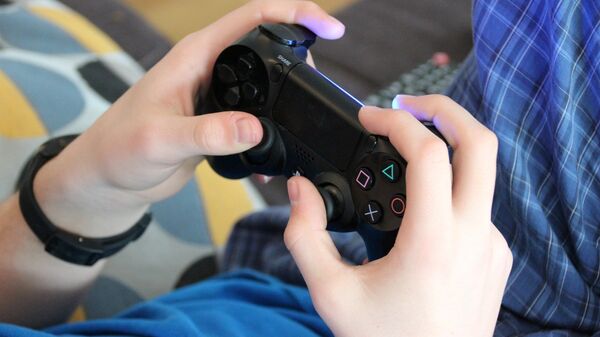On Monday, the World Health Organization (WHO) announced that compulsively playing video games is a mental health condition that requires treatment.
Dr. Shekhar Saxena, director of WHO's department for mental health and substance abuse, told AP that the decision to include compulsive video gaming in the organization's latest disease classification manual mandates "the need and the demand for treatment in many parts of the world."
But, what exactly does compulsive video game playing really mean?
According to Joan Harvey, a spokesperson for the British Psychological Society, playing video games for hours on end does not, by itself, constitute a gaming addiction. The hobby turns into an addiction when it interferes with the "expected functions" of a person's life, including impartment in personal, family, social, educational or occupational functioning.
"People need to understand this doesn't mean every child who spends hours in their room playing games is an addict, otherwise medics are going to be flooded with requests for help," Harvey said, AP reported.
"We come across parents who are distraught, not only because they're seeing their child drop out of school, but because they're seeing an entire family structure fall apart," Henrietta Bowden-Jones, a spokesperson for behavioral addictions at Britain's Royal College of Psychiatrists, told Medical Xpress.
However, the American Psychiatric Association has not yet labeled excessive gaming as a new mental health disorder. In in 2013 statement, the association said that the gaming disorder is a "condition warranting more more clinical research and experience before it might be considered for inclusion" in its own manual.
However, at the time, American Psychiatric Association also noted that studies about compulsive gamers suggest that gaming may affect the brain the same way as drugs.
"The studies suggest that when these individuals are engrossed in internet games, certain pathways in their brains are triggered in the same direct and intense way that a drug addict's brain is affected by a particular substance," the organization said in the 2013 statement. "The gaming prompts a neurological response that influences feelings of pleasure and reward, and the result, in the extreme, is manifested as addictive behavior."
According to Mark Griffiths, a professor of behavioral addiction at Nottingham Trent University, the new classification may help improve treatment options for people affected by the condition.
"Video gaming is like a non-financial kind of gambling from a psychological point of view," Griffiths recently told Medical Xpress.
"Gamblers use money as a way of keeping score, whereas gamers use points," he added.
He also noted that the number of video game players who are considered "compulsive" gamers is probably much less than 1 percent of all players. Those players most likely have other mental health conditions including depression, bipolar disorder or autism.



